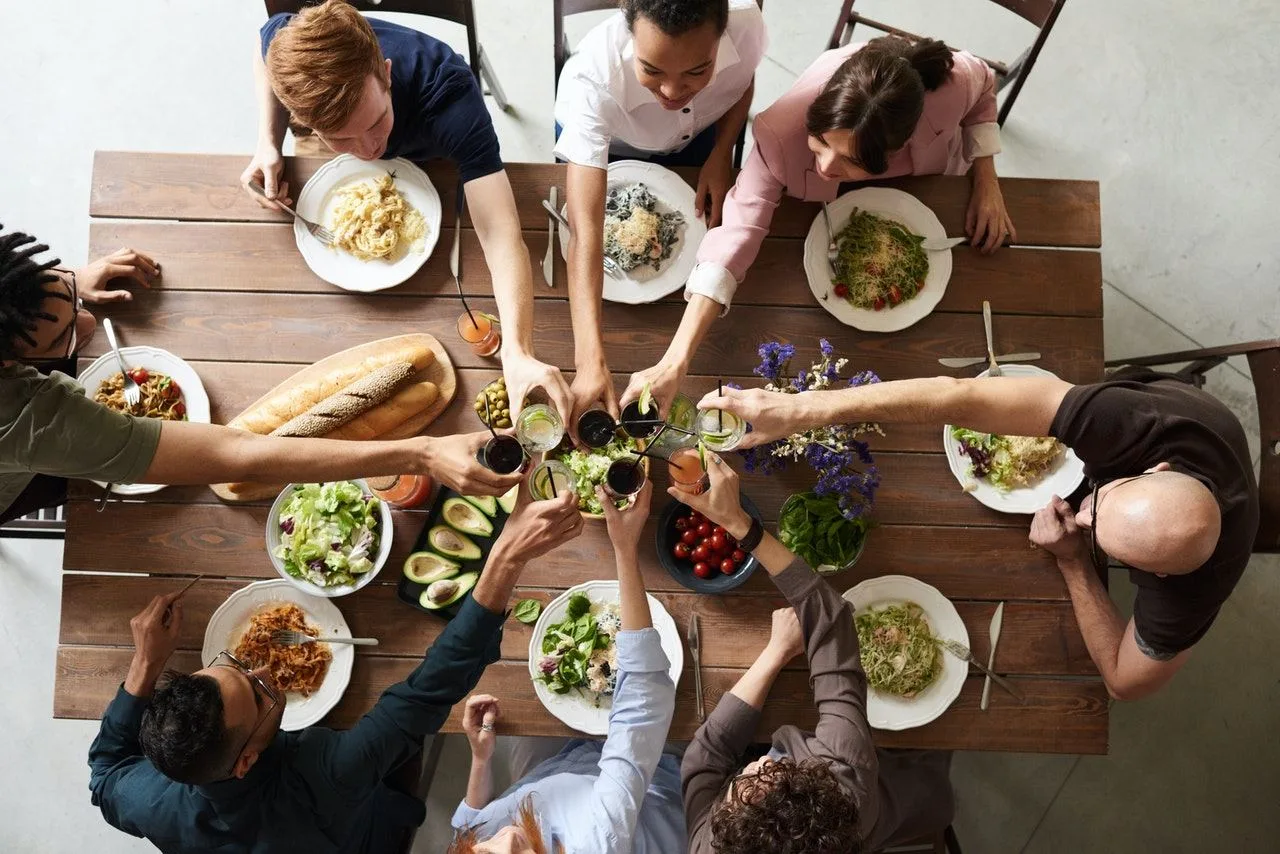If you and your family were about to eat dinner, and you had a friend over, would you invite them to eat with you? Or would you ask them to stay in the room and wait for the food to settle in your stomach?
It may sound like a strange question, but according to a recent viral Twitter moment that was spurred by a Reddit comment, having your guest wait in another room while you and your family eat dinner is quite common in Sweden and other parts of Northern Europe.
Not here to judge but I don’t understand this. How’re you going to eat without inviting your friend? pic.twitter.com/bFEgoLiuDB
— Seeker (@SamQari) May 26, 2022
Speaking to NPR, Richard Tellström, a food historian from Stockholm University, shared that while this practice was normal during the 60s and 70s, it wasn’t a universal rule as families in the countryside were more likely to feed guests. Additionally, he also admits that this system has faded,
“Since the 1990s, food has become a new symbol in society. We have open kitchens. People like to dine [there] and show off [their cooking].”
Now while the online debate rages on about what constitutes good manners and hospitality, it may be a good time to look at the benefits that sharing a meal with guests and friends can bring to you.
Are There Longevity Benefits to Sharing Meals?
Blue Zones are five areas that were virtually free of the disease and with numerous healthy residents that were living to age 100 and beyond. One of the habits the researchers noticed was that there was a strong sense of community in each Blue Zones. The researchers noticed that the inhabitants regularly cooked and ate together.
It’s clear that the benefits of sharing meals go beyond having someone to indulge your taste buds with, so read on to find out why you should always have an extra plate at the dinner table.
1. It encourages better eating habits
If you’re worried about your eating habits, it might be a good idea to start sharing meals with others. According to a study published in JAMA Network Open, frequent family dinners were associated with healthy dietary intake habits among adolescents.
2. It reduces the risk of obesity in later life
According to research from Oxford University, moderate obesity can reduce one’s life expectancy by about 3 years, whereas severe obesity can shorten a person’s life by 10 years – which is equal to the effects of lifelong smoking.
However, it seems that sharing a meal may help to reduce your risk of premature mortality by combating obesity. A study, published in the Journal of Pediatrics, revealed that teens who regularly partook in family dinners were less likely to be overweight 10 years later.
3. Improves life satisfaction
Spending time with others is sure to lift your mood, especially when there’s good food involved. According to a 2017 study, participants who frequently ate socially were likelier to feel happy and satisfied with life.
4. Reduces loneliness
According to a study published in PLoS One, loneliness has social and health implications, being a strong risk factor for all-cause mortality. According to research cited in the study, loneliness has been linked to depression, alcoholism, heart problems, poor sleep, weakened immune system, and Alzheimer’s disease.
The good news is that you can help combat the effects of loneliness by sharing meals with others. Sharing a meal helps to naturally build closer relationships, and it will help you feel more connected to others. In doing so, you’ll help alleviate any feelings of loneliness that you may have.
Want to know more?
If you’re wondering which meals you should be sharing with others, why not try breakfast? It’s the most important meal of the day, after all. In fact, here are the best foods you can eat in the mornings.





![women [longevity live]](https://longevitylive.com/wp-content/uploads/2020/01/photo-of-women-walking-down-the-street-1116984-100x100.jpg)










